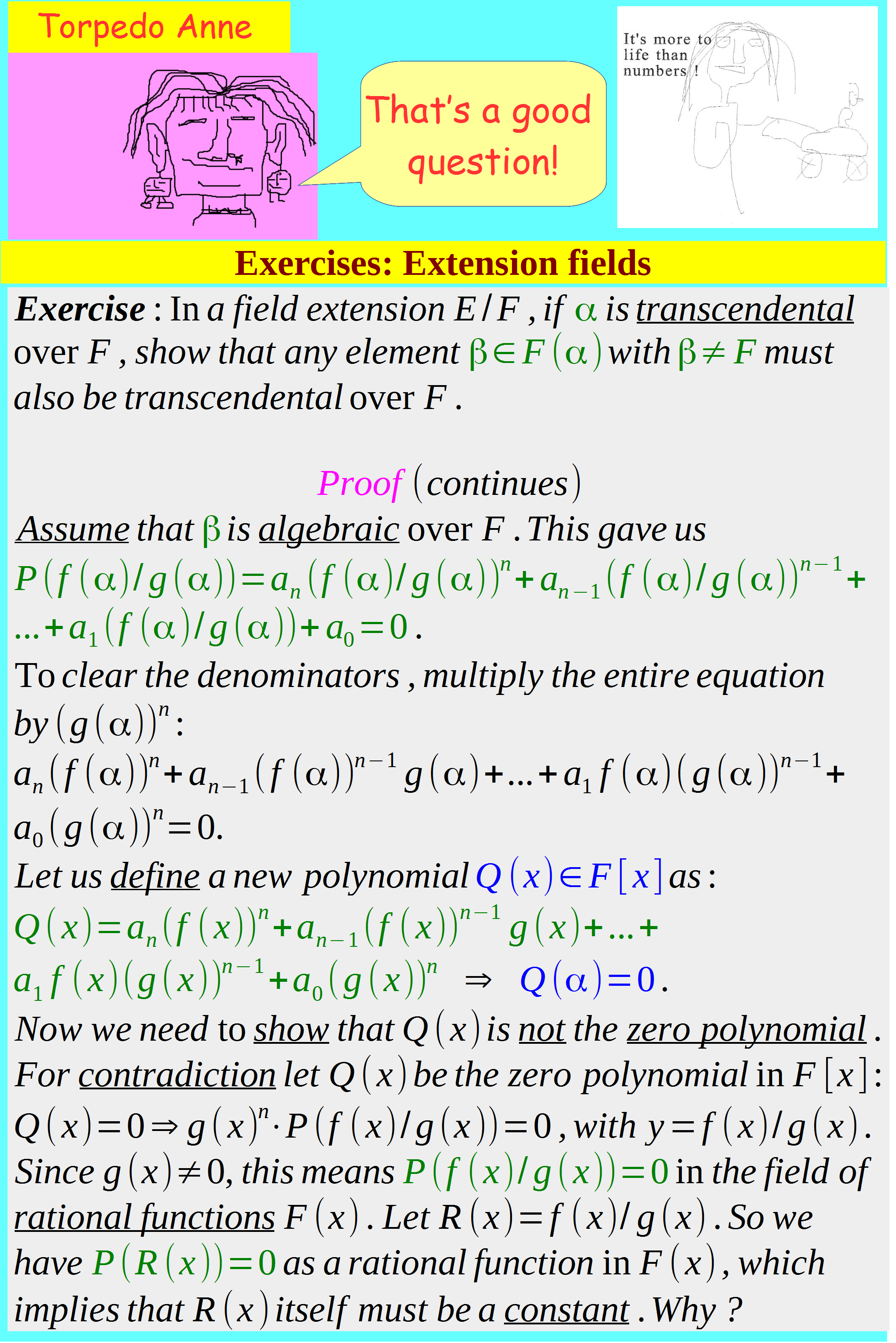page1986 Rings Matthias Lorentzen...mattegrisenforlag.com
Look at the picture beneath, then
scroll down to the question and click the correct Answer button.

Question
In the detailed proof, when trying to show Q(x) is a
non-zero polynomial, the argument arrives at the situation
where P(R(x)) = 0 as a rational function in F(x), where
R(x) = f(x)/g(x). Given that P(y) is a non-zero polynomial,
what is the direct reason this situation implies that
R(x) is a constant:
A) If R(x) where a non-constant rational function,
then P(R(x)) would necessarily be a non-zero
rational function, directly contradicting P(R(x)) = 0.
B) If R(x) were a non-zero rational function, it would
mean that `alpha` is a root of P(y), which is a contradiction
to `alpha` being transcendental
?
